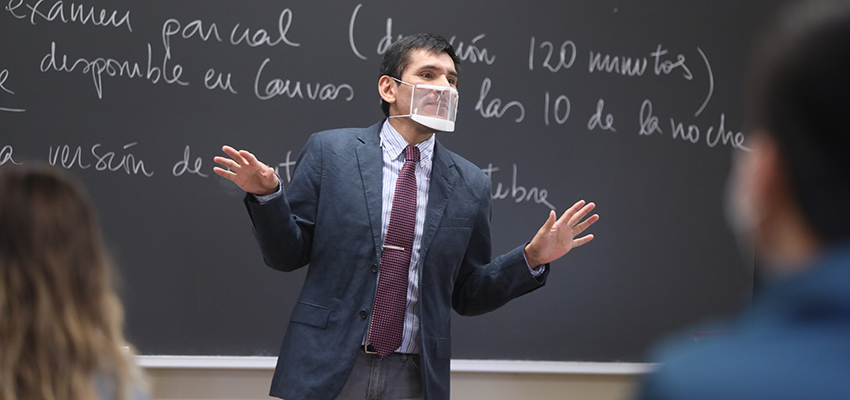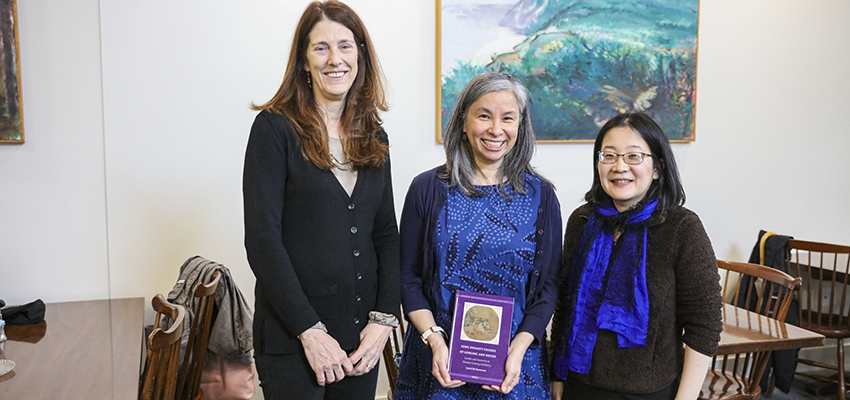
HWS News
3 December 2020 • Arts Rodrguez Mansilla Publishes on Lope de Vega
Associate Professor of Spanish Fernando Rodríguez Mansilla’s reconstruction and analysis of a 17th-century work by Spanish playwright Lope de Vega has been published in Parte XIX Comedias de Lope de Vega (Part 19 of Lope de Vega’s Complete Plays). Lope is the founder of the national theater in Spain.
“El serafín humano” (“The Human Seraph”), one of 12 plays published by the Golden Age playwright in 1624, is a comedia de santos or hagiographical play about the life and miracles of Saint Francis of Assisi. Rodríguez Mansilla was tasked with reconstructing the original text and analyzing the textual transmission since the time of its first printing to manuscript copies from the 17th century.
Rodríguez Mansilla explains that “reconstruction of an early modern text is a hypothesis, based on the editor’s expertise on the language and culture of the epoch, as well as, in this case, Lope’s literary production.”
In addition to reconstructing El serafín humano, Rodríguez Mansilla prepared a set of philological notes to explain the vocabulary, literary resources, stylistic features and other themes that reveal the many interpretative levels of the play. The edition also includes an appendix of variants transmitted by the editorial tradition.
“Although not among Lope’s most canonical works, El serafín humano belongs to the author’s literary maturity,” Rodríguez Mansilla says. “An ordained third-order Franciscan by the year the play was written, Lope applied in his work a vast and erudite tradition about Saint Francis that he was able to collect from historical, literary and artistic sources of his time.”
Parte XIX de Comedias de Lope de Vega is published by Editorial Gredos of Madrid, Spain, part of a larger project run by PROLOPE (Proyecto Lope de Vega). The research group from the Universidad Autónoma de Barcelona includes a network of specialists on Lope de Vega’s theater from universities around the globe.
Rodríguez Mansilla joined the HWS faculty in 2010. He received a Ph.D. in Spanish philology from the Universidad de Navarra in Pamplona, Spain. His scholarly interests include Golden Age narrative and poetry, the picaresque novel and the early modern Hispanic World.

